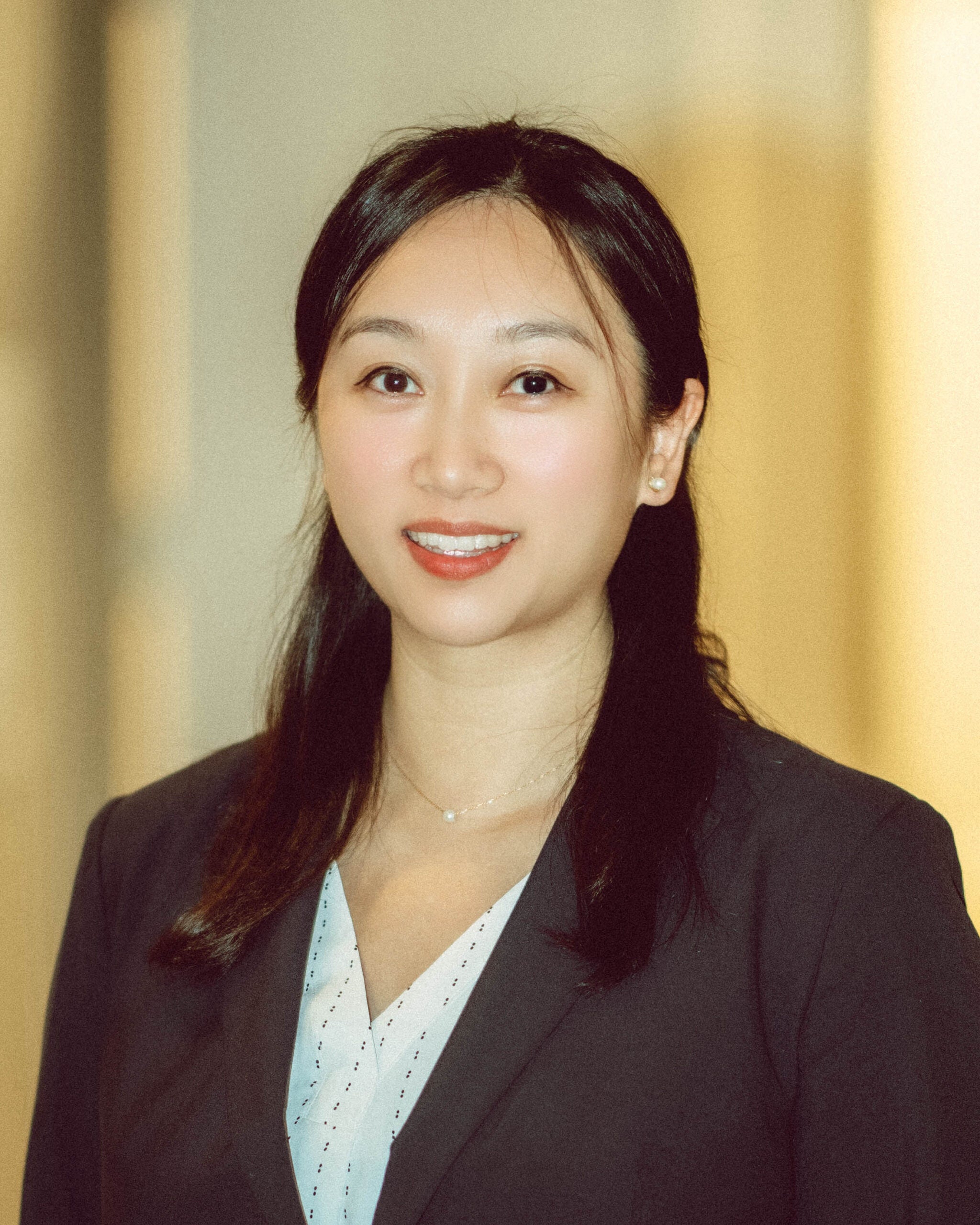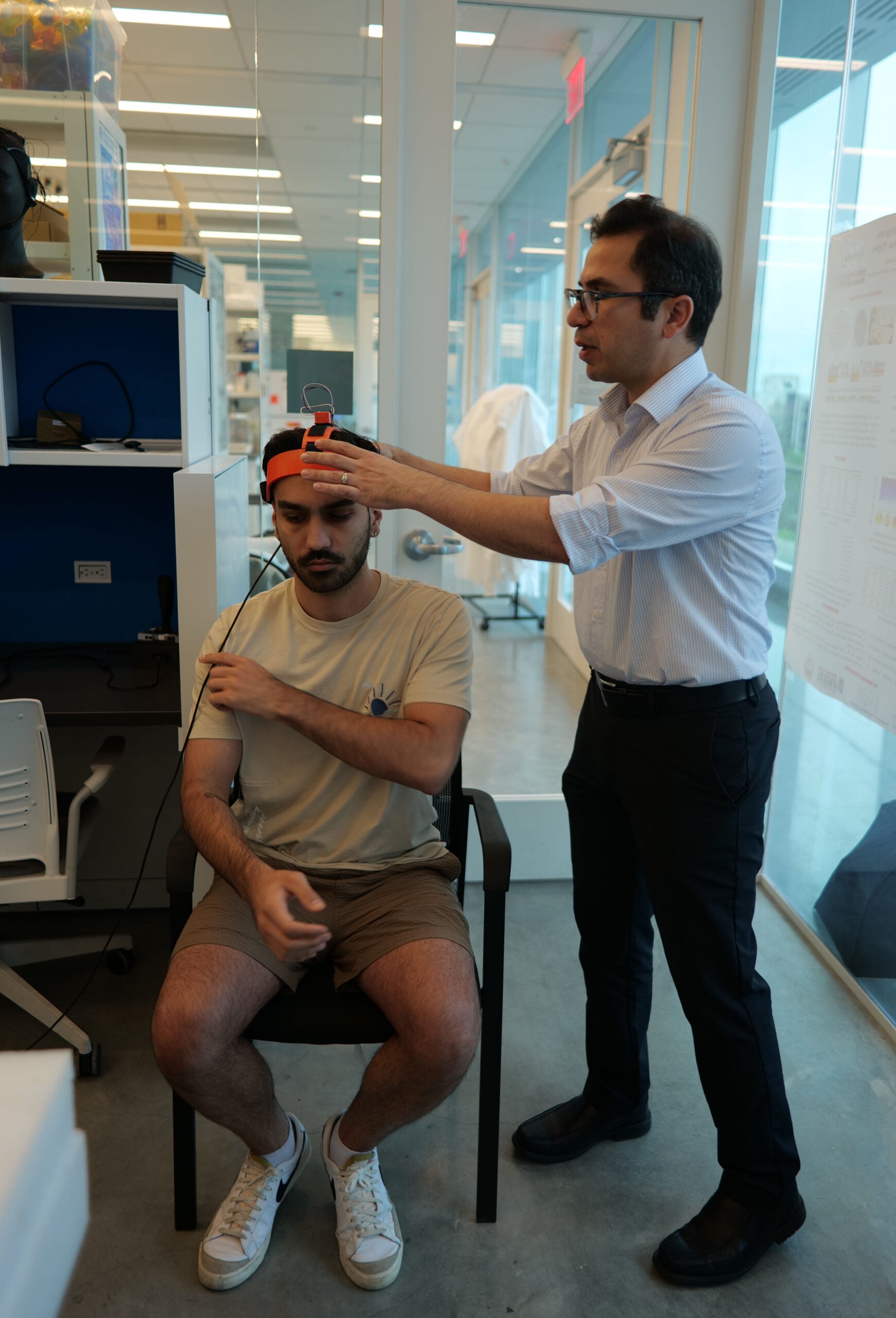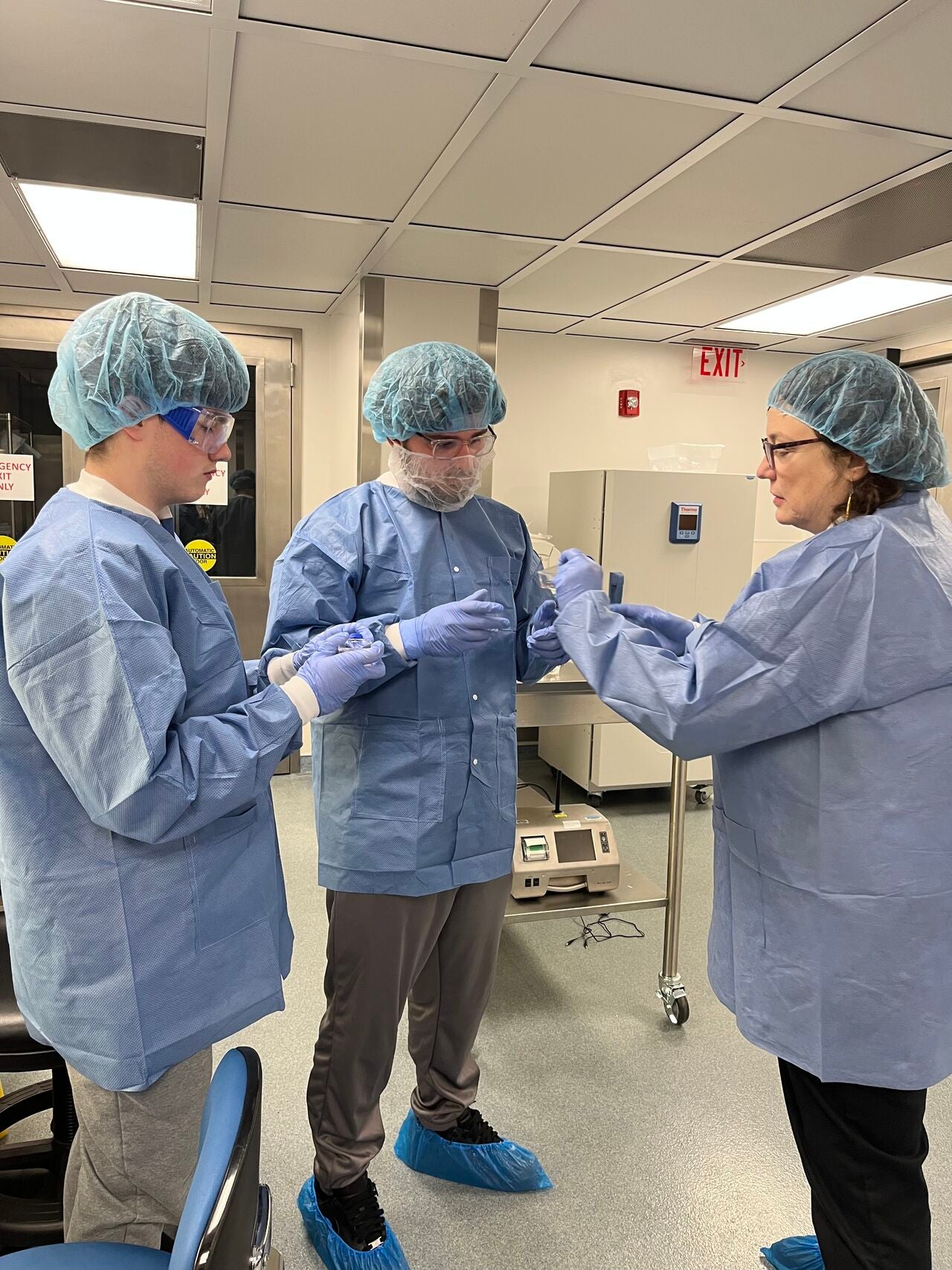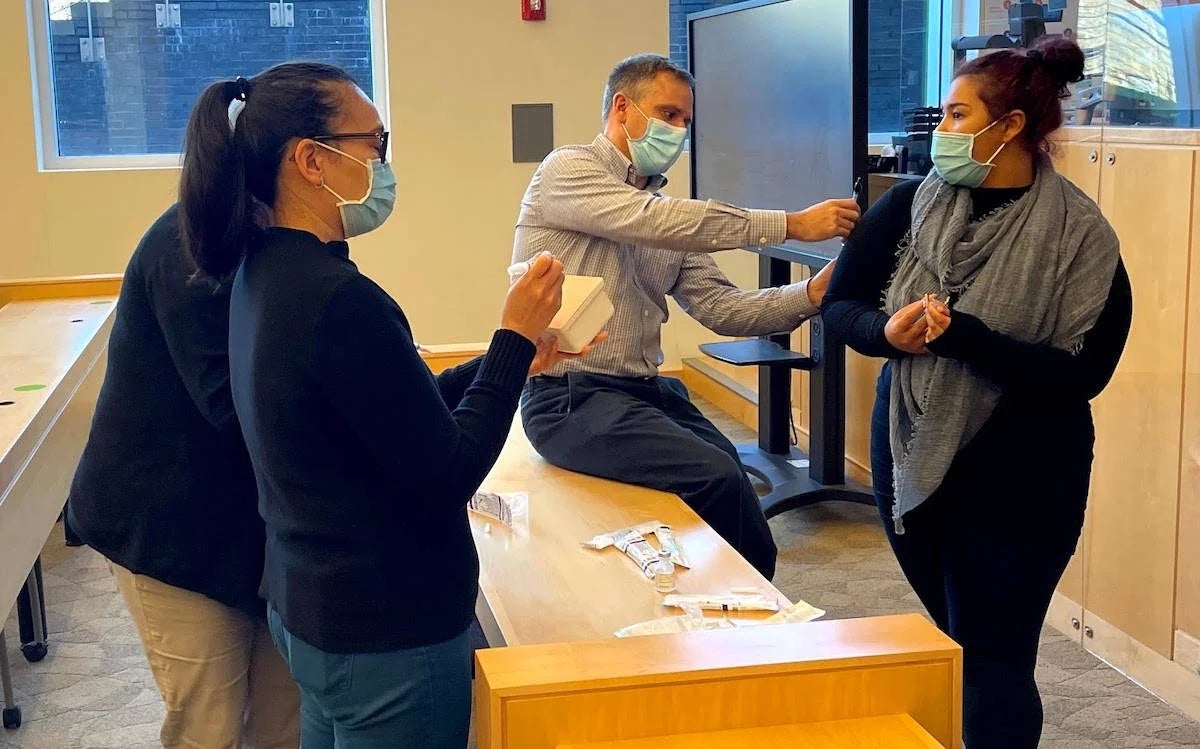Head of URI’s Chinese language program new president of national teachers’ association
KINGSTON, R.I. – July 29, 2025 – Yu (Joyce) Wu, director of the Chinese Language Flagship Program and Chinese section head at the University of Rhode Island, has been elected president of the Chinese Language Teachers Association, USA, the largest professional organization devoted exclusively to the study of the Chinese language, culture and pedagogy.
Wu, who previously served as the association’s vice president and on its board of directors, has been a member of the CLTA since 2010, when she was a doctoral student at Boston University. She started her one-year term as president in May 2025.
Founded in 1962, the Chinese Language Teachers Association supports establishing and sustaining quality Chinese programs in K-16, teacher education and professional development, and research related to all aspects of teaching. Its 800 active members include teachers in language, literature, linguistics, and culture at the college and university level, along with teachers at primary and secondary schools.
“The knowledge and mentorship that I have received from the CLTA really has made me feel this is an organization that has helped so many people grow at different stages of their professional careers,” said Wu, also an associate professor of Chinese at URI. “And it’s my time to give back.”
Wu joined URI in 2016 from the University of Massachusetts, Boston, attracted by URI’s Chinese Flagship Program and its proficiency-oriented curriculum. At URI, she has combined research interests that support classroom teaching, including proficiency development and assessment, learner factors in cognitive language development, and computer-assisted learning and teaching. Her work has won regional and national teaching excellence awards and research grants in proficiency-guided project-based learning, factors contributing to listening and speaking proficiency, and more.
“As an applied linguist researching second language acquisition and assessment, it has been a dream to work in a program with highly motivated students and to witness their rapid progress in Chinese from the novice level to superior – professional – proficiency in as little as four to five years,” said Wu, who became director of the program this year. “Only a handful of programs in the U.S. can graduate students with such advanced language skills.”
As one of the only eight such programs in the country, the Chinese Flagship Program is a federally funded program. It serves as one of two tracks for Chinese language students at URI. In the flagship program, students double major in Chinese and another major of their choice. They take language courses five days a week and participate in two eight-week immersion summer programs where they sign a pledge to only speak Chinese. Students reach a professional level of Chinese during their capstone year abroad, where they take content courses in their other major which are taught in Chinese and complete a four-month internship overseas. In the B.A. track, students instead take three days of language classes weekly and could minor or major in Chinese – similar to most programs in the country, Wu said. Students in both tracks have access to study abroad opportunities with scholarship support.
Wu credits her first CLTA annual conference in 2010 with helping to show her how to effectively teach Chinese. A panel presentation by representatives of the Middlebury College Chinese Summer School opened her eyes to the importance of research-guided pedagogy in teaching proficiency in different settings and immersion in the language – teaching methods that are at the heart of URI’s Chinese Flagship Program.
“People always think that if you are a native speaker of the language, you can teach the language. It’s not the case,” said Wu, who is originally from China. “That conference really opened up my mind to combine theory with reality. This is what people are doing and they’re successful in bringing students to high levels of proficiency.”
As new CLTA president, Wu has put together an ambitious list of goals she would like to achieve in her one-year term, starting with fostering collaboration with national organizations in other foreign languages. The sister organizations are all governed by guidelines for proficiency development set by the American Council of the Teaching of Foreign Languages, and they face the same challenges in areas such as the development of artificial intelligence, program sustainability, and funding cuts, she said.
“We need to stay united to advocate and demonstrate the importance of helping students see and understand the world through learning a foreign language and culture,” she said. “Language learning offers a unique opportunity to develop critical thinking and intercultural understanding.”
She also wants to enhance connections with research organizations to ensure that front-line foreign language teachers in higher education and K-12 are following research-guided pedagogy. And working with the CLTA’s 22 regional affiliated organizations and 13 special interest groups, she wants to build and strengthen K-16 programs, and foster the articulation between K-12 and higher education.
Wu also hopes to bring the association’s annual national conference to URI next spring. Held in April or May, the conference attracts 300 to 400 educators and students from around the country. It would be a great way to highlight URI’s successes in foreign language education, she said.
In its 15th year, URI’s Chinese Flagship Program, which graduates about 15 students each year, is one of the largest in the country – as is URI’s overall languages studies program, which has about 700 students. Also the University’s language programs have had great success helping students who want to combine a language degree with a second major, especially through the Honors Program and a number of signature programs such as the International Engineering Program, International Business Program, International Diplomacy and Studies Program, as well as the Chinese Flagship Program.
“I have grown as a teacher, researcher, and educator at URI, thanks in part to the support from our professional organization,” Wu said. “Bringing the CLTA conference here would not only elevate the visibility of the important work we are doing in the URI Chinese Flagship but also show K-16 educators across the country that achieving professional-level Chinese proficiency is possible. Just as importantly, it would provide a much-needed forum for meaningful dialogue among Chinese language researchers, teachers, policy makers, graduate students, and administrators – allowing us to connect, build, and grow together.”
Latest All News
- Navigating health careIf you’ve had to find a primary-care provider or pay a medical bill lately, you know that accessing and paying for health care can be difficult. But why? How can we get the care we need?
- URI to host RI-INBRE Summer Research Symposium Aug. 1KINGSTON, R.I. — July 29, 2025 — About 200 students from 10 institutions across Rhode Island will present more than 100 biomedical research projects they’ve spent the summer studying, as RI-INBRE hosts its 21st annual Summer Undergraduate Research Symposium on Aug. 1. The Rhode Island IDeA Network of Biomedical Research Excellence program started in 2001, […]
- Novel discoveries about Eastern Whip-poor-will nesting and chick growthKINGSTON, R.I. – July 28, 2025 – Known for their haunting, distinctive singing—a repetitive “whip-poor-will” call that echoes through summer nights—Eastern Whip-poor-wills have long inspired folklore, often seen as omens or symbols of mystery. Their elusive, nocturnal nature and expert camouflage make them far easier to hear than to see. Liam Corcoran ’18 M.S. ’25, […]
- URI engineering professor recipient of NSF CAREER Award for assistive rehabilitation researchKINGSTON, R.I. – July 29, 2025 – Severe motor impairment such as paralysis and degenerative conditions can limit a person’s ability to perform certain dexterous tasks. Currently, there are technological advancements that can aid in restoring some of this ability, but they can be invasive, requiring surgical implants that create drawbacks. University of Rhode Island […]
- New graduate certificate in cell and molecular biology aims to fill needs in field while offering career advancement opportunitiesKINGSTON, R.I. – July 23, 2025 – Molecular biology, biomedical sciences, laboratory medicine, and biotechnology are among the most challenging and exciting scientific fields of the 21st century. These disciplines are at the forefront of efforts to overcome global public health challenges such as heart disease, cancer, and infectious disease. The University of Rhode Island’s […]
- URI College of Pharmacy trains pharmacy technicians to administer vaccinesKINGSTON, R.I. — July 23, 2025 — This summer, University of Rhode Island College of Pharmacy faculty and staff members are continuing their efforts to help fight communicable diseases through a training program on the Kingston Campus that teaches pharmacy technicians to administer vaccines. Originally developed by Washington State University and revised through a partnership […]












